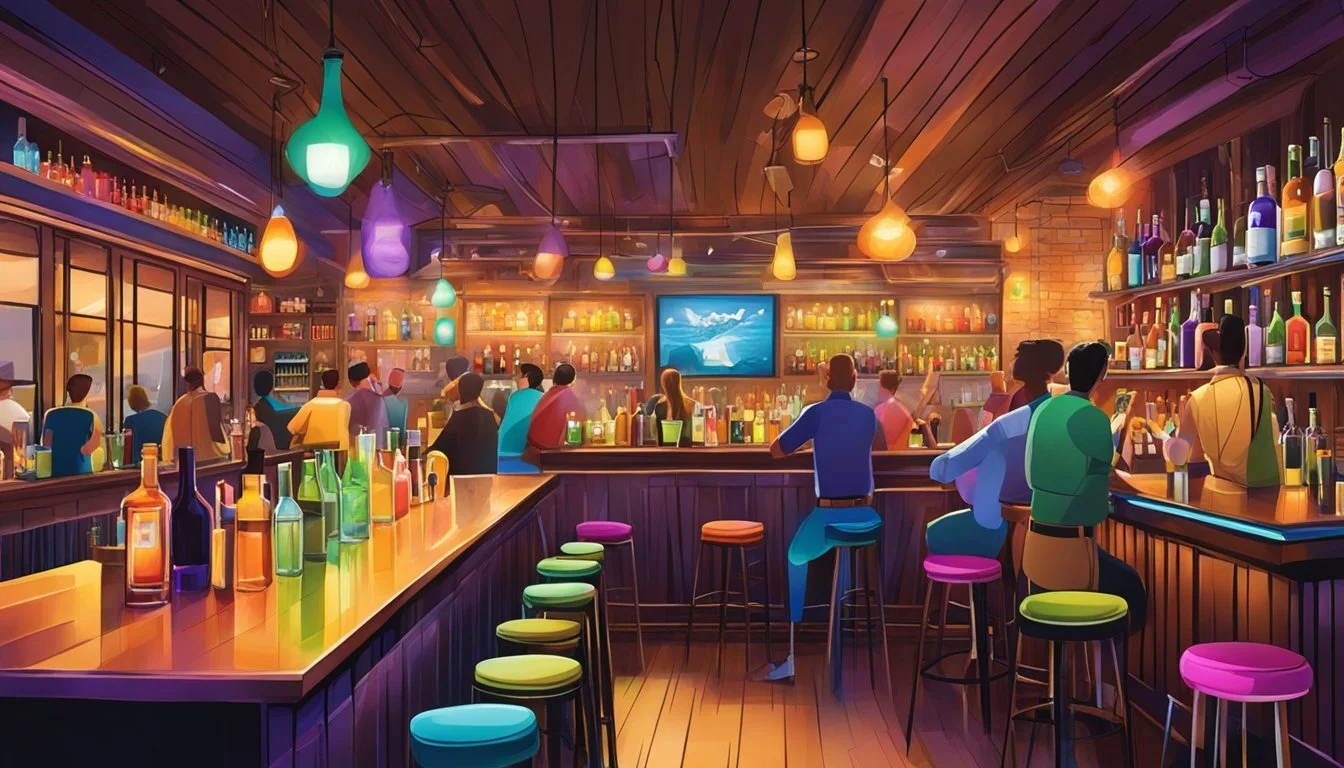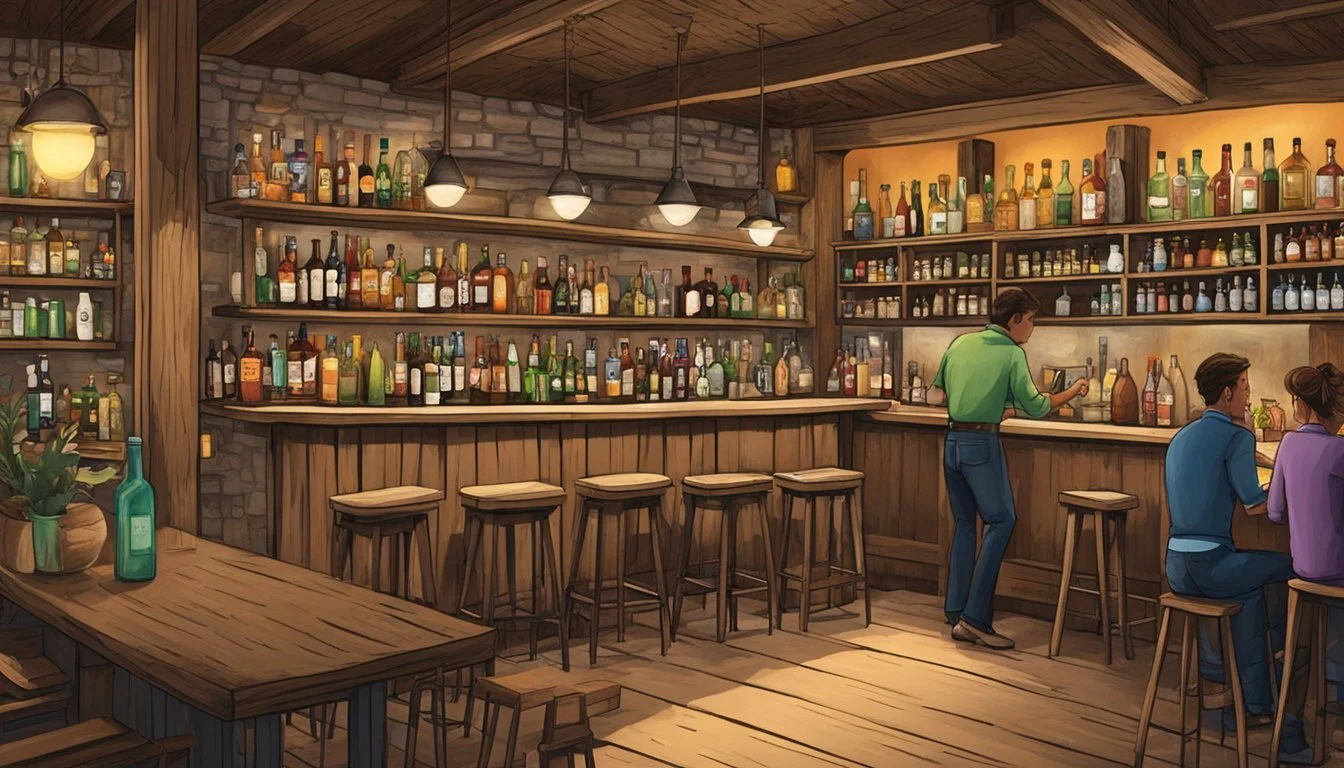The Rise of Non-Alcoholic Cocktails in Texas
Cultural Shift and Market Growth
Across Texas, the beverage scene is evolving as non-alcoholic cocktails gain popularity. These innovative drinks provide sophisticated flavor profiles that mirror their alcoholic counterparts, ensuring that taste is not compromised. Bars and restaurants are responding to a growing demand for such options, catering to those who are sober curious or abstain from alcohol for health, personal, or religious reasons. With a rise in health consciousness, many people are reevaluating their relationship with alcohol, leading to an increased interest in non-alcoholic alternatives.
The trend isn't limited to non-drinkers; it also appeals to individuals looking to moderate their alcohol intake while still enjoying the social aspects of bar culture. Texas is home to establishments pioneering in the craft of non-alcoholic brews and cocktails, offering a variety of choices that defy former expectations of limited taste and variety in alcohol-free options.
The non-alcoholic movement is part of a broader cultural shift towards mindful consumption. As more individuals explore a sober lifestyle, the market for non-alcoholic beverages has expanded significantly. Texas, known for its pioneering spirit, is at the forefront of this shift, with local entrepreneurs and established venues alike innovating to satisfy the nuanced palates of today's consumers. This change is reflective of a wider societal acknowledgment that the social experience of enjoying a drink can exist without alcohol.
Historical Context of Non-Alcoholic Drinks in Texas
The trend of non-alcoholic cocktails in Texas holds roots in the state's historical encounters with prohibition and a recent resurgence attributed to health and wellness movements.
Prohibition and Its Long-Term Effects
During the early 20th century, Texas, like the rest of the country, experienced the impact of the Prohibition era. The Volstead Act, passed in 1920, banned the sale and distribution of alcoholic beverages, a law that remained until 1933. Texas brewers had to adapt, creating "near beer" products to survive. Post-Prohibition, a lingering effect was the foundation of a non-alcoholic beverage culture that some Texan establishments continue to uphold. This niche was later capitalized upon during periods of national sobriety recognition, including Dry January and Sober October.
The Cultural Shift Towards Health and Wellness
In the late 2010s and early 2020s, a cultural shift emphasizing health and wellness began to contribute to the demand for non-alcoholic alternatives in Texas bars and restaurants. The pandemic accelerated this trend, as individuals became more conscious of their health and consumption habits. The recovery period evidenced an uptick in these non-alcoholic offerings, with some Texas bars not only stocking such options but also specifically crafting menus around them. Consumers increasingly sought out beverages that permitted social enjoyment without the repercussions of alcohol, making room for a sophisticated array of non-alcoholic cocktails.
Current Trends in Non-Alcoholic Beverages
Within the beverage industry of Texas, a notable shift toward non-alcoholic options reflects changing consumer preferences and emerging health trends.
Rise of the Sober Curious Movement
The sober curious movement has gained momentum as individuals increasingly explore the health benefits of alcohol-free living. This trend is characterized by a growing number of people experimenting with periods of sobriety or reducing their alcohol intake without necessarily abstaining entirely. Establishments across Texas have recognized this movement, offering an array of non-alcoholic cocktails to cater to this audience.
Influence of Millennial and Gen Z Preferences
Millennials and Gen Z consumers are major drivers in the rise of non-alcoholic beverages. These age groups prioritize health-conscious choices and often seek drinks that align with their wellness-oriented lifestyles. Brands like Seedlip, Kin Euphorics, and Ritual Zero Proof are responding with products that offer the complexity of traditional spirits without the alcohol content.
Statistical Insights From Recent Studies
Recent industry reports illuminate the trajectory of non-alcoholic beverages:
Non-alcoholic beer commands a significant portion of the market with 85.3% of non-alcoholic beverage sales.
The non-alcoholic spirits category has experienced substantial growth, rising by 88.4% to a market worth of $5.03 million.
Overall, the non-alcoholic drinks market surpassed $11 billion in value in 2022, underscoring a robust consumer interest in these products.
These statistics demonstrate that non-alcoholic options are not just passing fads but significant contributors to the evolving beverage landscape.



